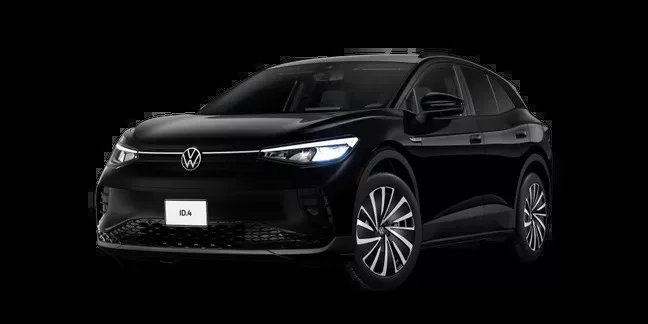When we think of electric vehicles and towing, the image that often springs to mind is that of hefty, high-end electric trucks. However, a couple’s journey shared by TFL EV on YouTube turns this assumption on its head. This adventurous pair demonstrated that with a Volkswagen ID.4 and a spirit of determination, even a small camper can tackle America’s vast expanse.
The Towing Challenge Begins
The necessity for their feat was born out of a move, with a Casita travel trailer in their possession. The resourceful couple chose to forego the services of a car hauler, opting instead to tow the trailer themselves and load their Volkswagen ID.4 with precious belongings and bicycles.
Efficiency Meets Reality
While towing, the ID.4’s efficiency understandably dipped, delivering between 1.8 to 2.4 miles/kWh, a notable drop from its standard 3.5–3.6 miles/kWh. Still, their electric venture was cushioned by the comforts of their camper, allowing them to rest easily during the extended charging breaks provided by Electrify America‘s network.
Why Choose an EV for Towing?
Ahead of the entire journey, the couple had faced transmission issues with their former Subaru Outback. With careful consideration, they upgraded to the ID.4 for its adequate towing capacity and affordability compared to plug-in hybrids they initially considered.
The Verdict: Worth the Effort
Upon crossing the country, they remained convinced of their choice. With towing performance exceeding expectations and costs comparable to the Subaru, this electric road trip proved to be a success.
The Pace of EV Travel
Moving slower might seem like a downside to some, but the couple found a certain joy in the unhurried travel that EV road-tripping necessitates. This pace, along with the financial relief from Electrify America’s free charging, shifted their perspective on long-distance journeys.
Planning and Adaptation
The trip did have its challenges. Charging stations often required unhitching the camper due to lack of pull-through spots. Added to this was the aerodynamic adjustment of moving their bikes indoors, which proved significant for maintaining range.
Choosing the Route
The travelers chose their path from among three main cross-country routes, taking into account the availability of charging stations and avoiding the harsher climates of the northernmost option.
On-the-Fly Trip Tweaks
Instead of relying on route planners, the couple used a spreadsheet, adjusting their speed and bike placement according to the needs of each leg of the journey. Despite some occasional glitches with the ID.4’s onboard software, they persevered and kept their travel spirits high by mingling visits to national parks and friends along their route.
Looking to the Future
They envisage that with time, as charging infrastructure improves, such trips will require less meticulous planning and foster less range anxiety. Their experience, while exhausting, was rewarding and opened their eyes to alternative charging networks and the benefits of a healthier lifestyle on the road.
The End of the Road and Reflections
After reaching their destination, they acknowledged the value of their journey. They may not undertake such a trip purely for pleasure anytime soon, but for a more leisurely adventure, the electric pathway could prove less daunting.
Anticipating More Efficient Travel
The couple is optimistic about the prospects of traveling in even more efficient EVs, like the proposed Aptera, though they note the unusual American travel culture where gigantic RVs often replace more affordable accommodation options.
Their story reshapes our understanding of EV capabilities, illustrating that with some creativity and patience, electric vehicles can indeed go the extra mile—even when towing along a piece of home.


























